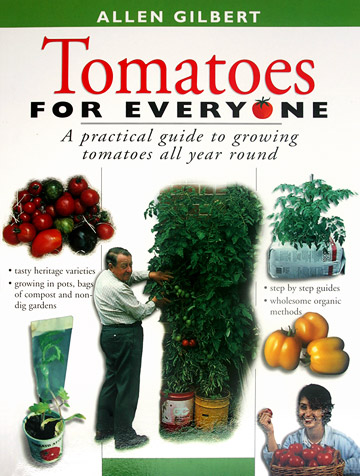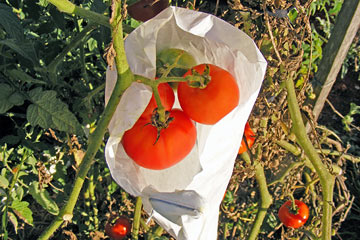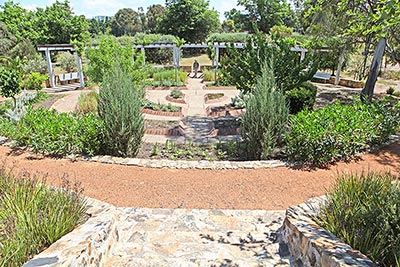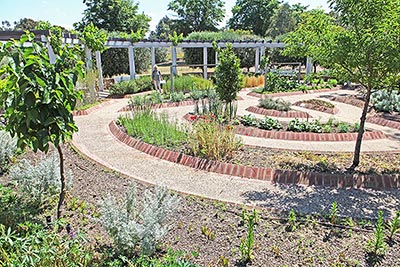Newsletter - Spring 2014
It's time to plant for your spring vegie garden
Check your needs of the following vegetable seeds now, or whatever you need for your area from the full catalogue.
|
Our new Spring catalogue is available
If you don't have our new catalogue and would like us to send one, you can request a free catalogue here.
New varieties, or back in stock since 2013 catalogue.
| Eden Seeds Amaranth leaf – Garnet Red Amaranth leaf – Green Calaloo Broad Bean – Egyptian Bush Bean – Flageolet Climbing Bean Mostoller Wild Goose Snake Bean – Black seeded Snake Bean – Red Dragon Dried Bean – Cannellini Carrot – Belgium white Corn Mutli-coloured Aztec Corn – Reids’ Yellow Dent Cucumber – Painted Serpent Lettuce – Rabbit Ear Onion – White Sweet Spanish Pumpkin – Rouge Vif D’Etampes Radish – Munich Beer Squash – Gem (Rolet) Perilla Red Tomato – Sweetie Tomato – Cherry Roma Tomato – Moneymaker Tomato Red Russian Tomato – Tommy Toe Tomato – Rumseys Red Tomato – Cherokee Purple Tomato – Walter Tomato – Kotlas Tomato – Mortgage Lifter Tomato – Golden Roma Tomato – Amish paste Gourd – Large Fruited Mixed Gourd – Large Mixture Sunflower – Evening Sun | Select Organic Amaranth leaf – Garnet Red Broccoli – Purple Sprouting Early Brussels Sprouts – Groninger Cabbage – Red Acre Chinese Cabbage – Granat Corn – Ontos Oval Cucumber – Bushy Cucumber - Improved Telegraph Cucumber – Lemon Cucumber – Salt and Pepper Cucumber – Suyo Long Gherkin – Hokus Leek – King Richard Lettuce – Great Lakes Lettuce – Flame Lettuce oak-leaf purple Luffa Mustard Greens – Giant curled Mustard Greens – Purple Frills Onion – Purplette Parsnip – Tender and True Parsnip – White Gem Pea – Sugarsnap Climbing Pumpkin – Big Max Pumpkin – Musque de Provence Rosella Silverbeet – Bright Lights Spinach – Chinese Tomato – Sweetie Salad Greens – Corn Salad Purslane – Green Sorrel – Garden Watermelon – Chris Cross Watermelon – Moon and Stars Grain – Khorasan Grain – Spelt Dill – Dukat Flanders Poppy Sunflower – Evening Sun |
Articles
Tomatoes For Everyone - a book by Australian horticulturalist Alan Gilbert
Some suggestions I found interesting.
Early season tomatoes are in demand to be included in summer salads and cooking.
There are many advantages to planting seed inside whilst it is too cold outside. First, work out when you can transplant outside and sow seed so plants will be strong enough to survive transplanting. Let’s say transplant mid October. So sow seed inside in early September.
Tomato plants can be separated from a punnet if you transplant in a cool part of the day and water in quickly. Cover roots whilst transplanting. You can even cover the plants for a day or so until they pick up. Alternatively you can sow in individual cells to reduce transplant shock.
Tomatoes do not like to be waterlogged and should be planted in well drained raised beds if you expect heavy rains during the growing season. Plants will grow through "winter" in areas where there is no frost. Some varieties set better than others in cool condition e.g. Rouge de Marmande. Pests are less in the cooler months.
.........
Also :-
To exclude pests from eating the fruit try the paper or mesh exclusion bags in the Eden Seeds catalogue.
Tomatoes are not recommended for people who have suffered cancer.
Happy growing - Alf Finch
Book Specials - 20% discount on the following titles:
2015 Moon Planting Guides
* NEWMoon Planting Guide for Gardeners 2015 (Wall Chart) | * NEWMoon Planting Guide 2015 | * NEWMoon Planting Primer 2015 |
|
Wall chart approximately 276mm x 780mm. Excellent quick reference. Stefan Mager, 2014, 2 pages. $10.00 > Buy now | The 2015 Astro Calendar of the Antipodes. Brian Keats, 2014, 32 pages.
Coming Soon!Available from Oct 2015 | Simplified beginners version of Astro Calendar. Brian Keats, 2014, 14 pages.
Coming Soon!Available from Oct 2015 |
2014 Moon Planting Guides
Moon Planting Guide 2014 | Moon Planting Primer 2014 | Moon Planting Guide for Gardeners 2014 (Wall Chart) |
The 2014 Astro Calendar of the Antipodes. The author has combined his interest in naked eye astronomy and the plant world to produce this bio-dynamic planetary planting guide. Detailed explanations on sun, moon, and planetary rhythms, and their connections to life in the plant world. Printed on certified 100% recycled paper. Builds into a reference work. Brian Keats, 2013, 32 pages. *REDUCED TO $12.00Spring Special $9.60> Buy now | Simplified beginners version of Astro Calendar includes four primary rhythms, Moon phases, Moon altitude, Moon proximity to Earth, Moon in zodiac. Printed on certified 100% recycled paper. Brian Keats, 2013, 14 pages. *REDUCED TO $4.00> Buy now | Wall chart approximately 276mm x 780mm. Excellent quick reference. Stefan Mager, 2013, 2 pages. *REDUCED TO $6.00Spring Special $4.80> Buy now |
Articles
Plants of the Bible Lands
One of the delightful surprises I discovered on a recent visit to Canberra is the Plants of the Bible Garden 15 Blackall St Barton. The garden was establish from 2006 under the trust set up by Gerald Robinson and is on the west side and overlooking Lake Burley Griffin,
F. Nigel Hepper has written a book titled "Planting a Bible Garden".
Those included in our catalogue are leek, onion, garlic, dill, roman chamomile, mustard, coriander, cumin, watermelon, wheat, barley, flax poppy, sorghum, bean, pea, wormwood, chicory, fennel, rue, sage, caper bush, carob, date palm, stone pine.
It is posssible to add herbs, vegetable, flowers and shrubs to your existing garden. Many tender plants can be grown in igloos and shade-houses.
A small patch of grains such as wheat, barley and sorghum planted in strips is very interesting when mixed with corn poppys and thistles.
It is amazing how many fruiting trees can be incorporated into any garden. Those suitable include almond, apple, apricot, carob, fig, mulberry, olive, pomegranate, rose, grape and bay tree.
This could also be an interesting project for schools, colleges and religious institutions.
A visit to St.George Cathedral in Jerusalem is a wonderful botanical experience. Donors form far and wide have enabled gardener Samer Bassa to maintain an established Bible Garden.
Articles
Note from Bob Phelps - Director of Gene Ethics

Hello Alf:
We are working hard on retaining South Australia's and Tassie's GM-free status till 2019, when it is due to expire on September 1, in the normal course of events. The GM moratorium in SA has had the support of all parties since its introduction in 2003, when the OGTR issued commercial GM canola licences to Monsanto and Bayer.
The following data supports the GM-free stance. On the figures we can secure, below, we conclude:
- average GM and non-GM canola yields were very similar from 2008-2012.
- GM canola has no yield advantage over the top non-GM varieties.
- the percentage of GM canola in the entire canola crop in VIC & NSW is in decline.
- the decline in GM seed use results from: less profitable than non-GM, no increase in yield, many well-performing canola seed options available, 'tried GM but never again'.
- Birchip Cropping Group found in 2011 in Western Victoria that GM canola was less profitable than non-GM by ~$150/ha. This resulted from much higher input costs - seed, chemicals, transport, segregation - & lower returns for the harvest. (see attached article) Though the GM seed owners have since capped the price discount on harvested GM canola at $10/tonne, input and management costs are still higher, prices lower and profits lower.
For the latest news visit Gene Ethics Facebook at: http://tinyurl.com/czgdz6c
Web: www.geneethics.org Tel: 1300 133 868 Email: [email protected]

Thanks for your support, happy gardening.
Alf Finch & the staff at Eden Seeds & Select Organic.






















